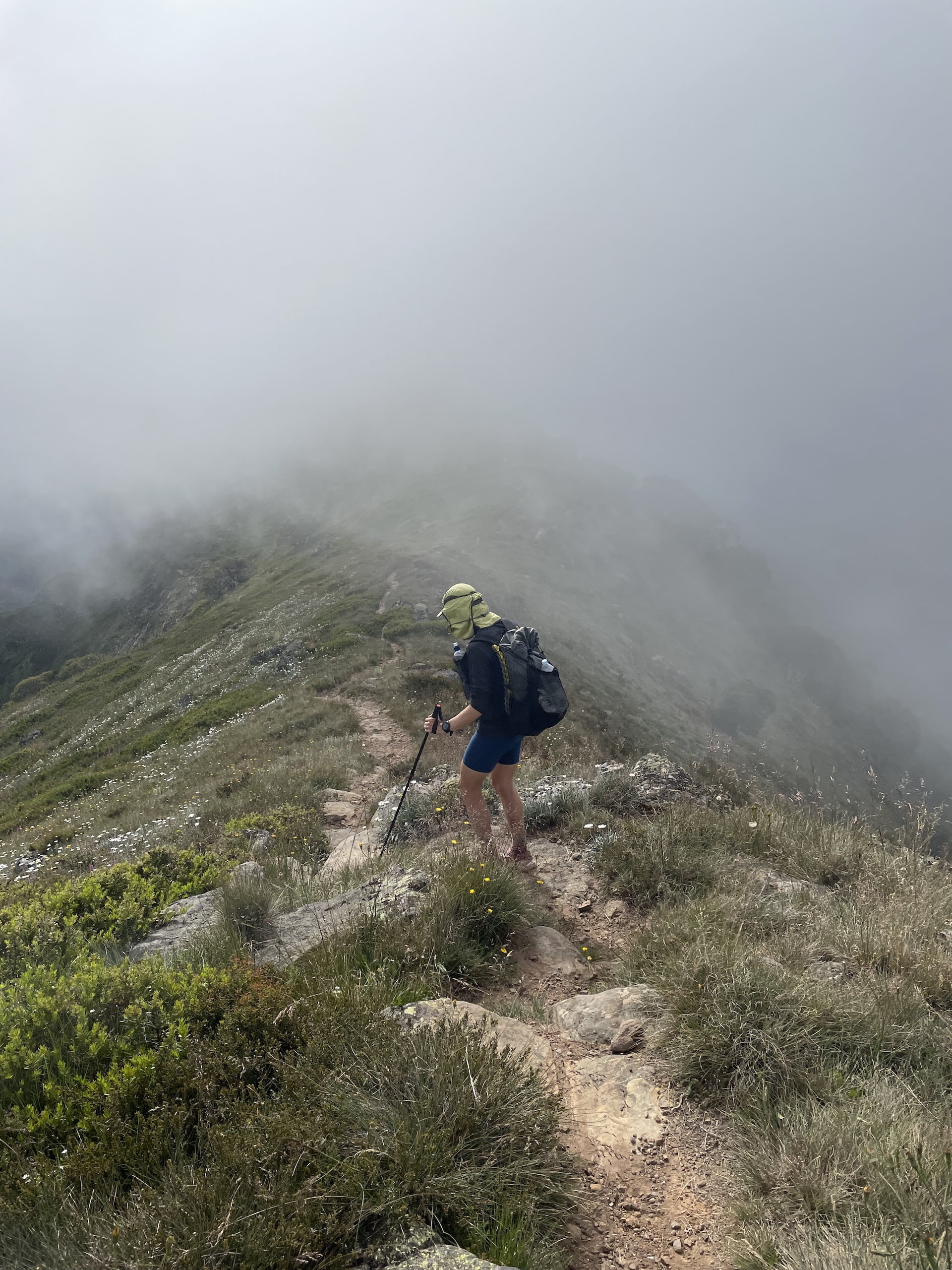
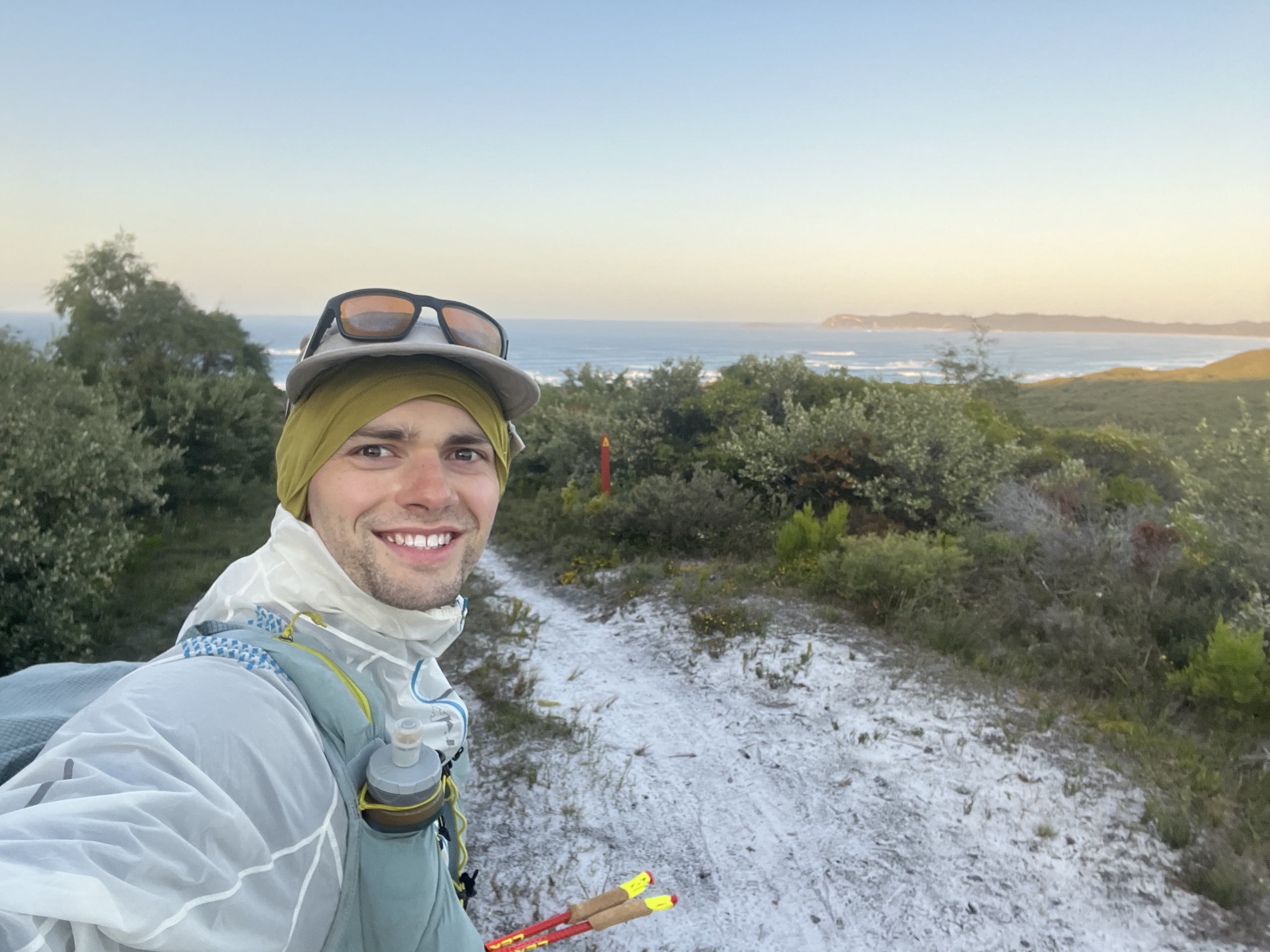
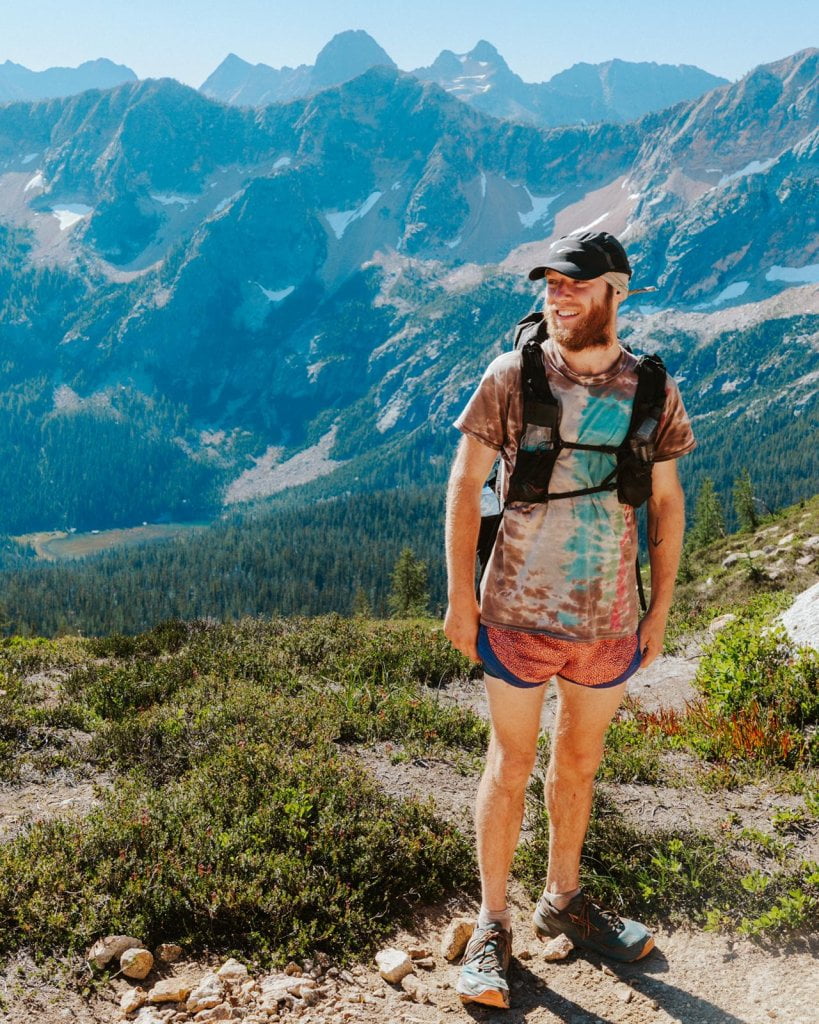
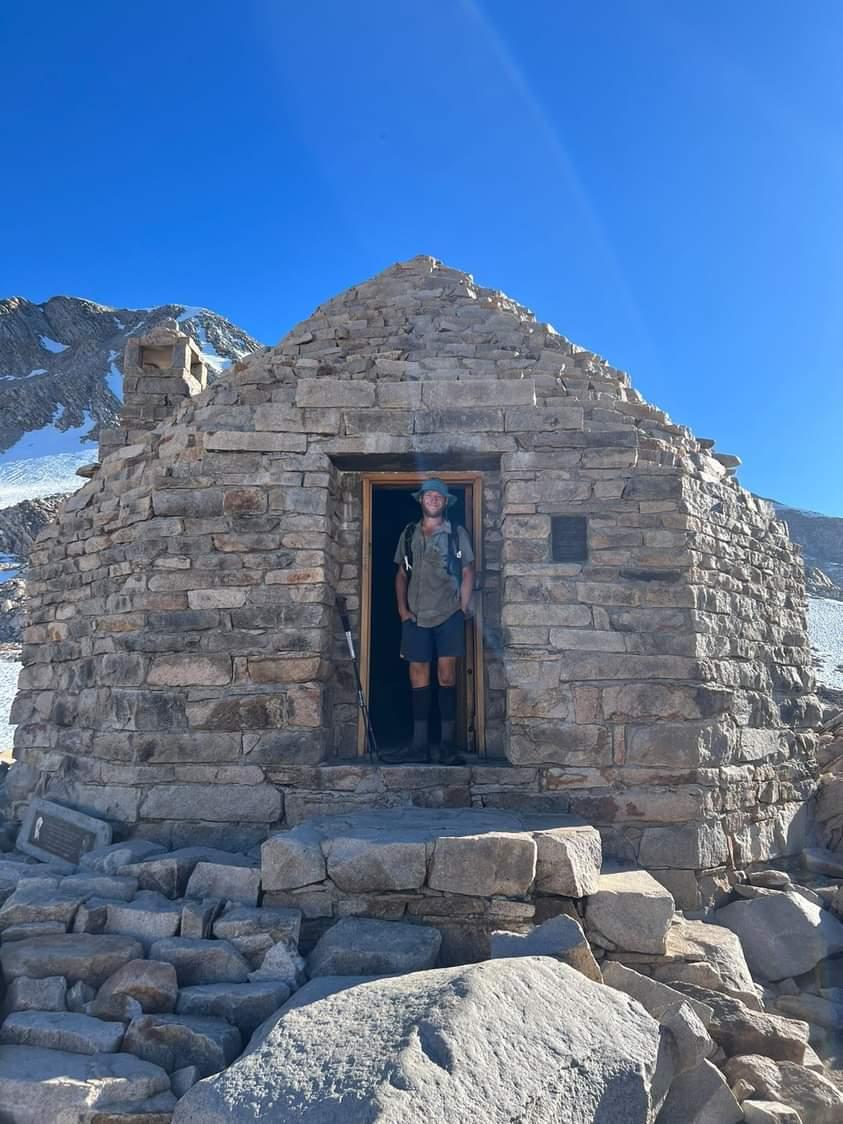
Josh Perry and the Realities of Ultra-Long FKTs
Fastest Known Times (FKTs) are the current activity du jour for endurance athletes. The premise is simple and tantalising: can you finish a route faster than all those who have come before you? In the context of long distance hiking trails, records are constantly being broken and the concept of what’s possible is ever expanding.
I, Tom Bartlett, jumped head first into the FKT space this year with successful self-supported attempts on the Australian Alps Walking Track (680km/420mi with Paul Cuthbert) and the Bibbulmun Track (1000km/620mi). I am now no stranger to covering 80km (50mi) per day and sleeping 4 hours a night for up to two weeks. However, the broader cost of these FKTs were much higher than I initially anticipated, encroaching on nearly all aspects of my life.
To see if my experience was typical, I reached out to Josh Perry to have a discussion about his self-supported FKTs. His efforts include the Long Trail (440km/273mi) and Arizona Trail (1315km/817mi) in 2019, and the Pacific Crest Trail (4200km/2600mi) in 2022. Josh has arguably set some of the most competitive self-supported FKTs in the world and is one of the strongest athletes ever to have entered the space. With his help, I wanted to discuss the less obvious and sometimes negative consequences of chasing ultra-long FKTs.
Preparing for FKTs can be all-consuming
Despite convincing each other that we aren’t obsessive, both Josh and I were happy to admit that planning for FKTs can involve days, weeks and months pouring endlessly over every single possible detail. From gear, to sleep strategies, to start dates, there are a near infinite number of ways to approach an FKT. As Josh put it, “The more planning you do, the more committed you are. This helps you deal with pain in the hard moments and you are less likely to quit.”
With the benefit of hindsight, we could both see times when we over focused on a single detail in preparation. Before the AAWT, I spent hours ensuring the callouses on my feet were filed down to the correct level. In the months leading up to the PCT, Josh spent “literally days trying to pick the optimal start date for the 2600 mile hike. In the end, it didn’t really matter as starting on the 16th or 13th of June wouldn’t have made a difference.”
Although being well prepared is generally a good thing, this tunnel vision can exacerbate stress levels. In the hours before the Bibbulmun Track, my nerves meant I was unable to tie my shoe laces or pack my own bag. The night before the Arizona Trail, Josh distracted himself by “staying up till 1AM reading a book, despite having a 4:30AM alarm and having all week to read that book.” Although this level of focus and intent might fuel success for these FKTs, it can certainly be a double edged sword.
FKTs can cause lasting damage to your body
Perhaps what scared me the most about FKTs was the potential for causing serious long term damage to my body. To try to prevent this, I preemptively chatted with my physio about the different types of pains and injuries I was likely to encounter. We focused on how to distinguish between when to push through pain and when to stop. I was also able to text him during my FKTs to get his opinion on niggles that were concerning me. So far, I think I’ve been lucky enough to escape any long term damage.
Josh has not been so lucky and explained to me how, “I might need a toe amputation from the AZT as I took too much ibuprofen to deal with the pain from my shin stress fracture. With all the ibuprofen and sleep deprivation, I also didn’t notice when I got a concussion.” This highlights the tricky balance between setting an FKT and overdosing on painkillers. On my first FKT, I was shocked at how effective over the counter products like ibuprofen were at managing inflammation and pain. However, it’s difficult to make rational long-term decisions mid FKT when you’ve spent months preparing, are sleep deprived, and your feet are screaming for 20 hours per day.



Finishing is rarely satisfying
For many people, I suspect the all-consuming planning and injury risk aren’t that surprising. What I think would surprise more people is how underwhelming finishing an FKT can be. On FKTs, I have spent days thinking what crossing the finishing line would feel like. Often these thoughts of joy would cause tears to roll down my cheeks. However, much like endurance bikepacking races, both Josh and I agreed that the reality is almost always the opposite. Josh described how he is typically “too exhausted for happiness”, and is often only concerned about sleeping.
For me, I’m now happy to accept that joy and satisfaction requires time and distance from the event. However, there is always a bittersweet feeling as Josh notes that, “You know there is always something you can do better. In the end, the perfect FKT doesn’t exist.”
The recovery takes months
Both Josh and I agreed that, mentally, the hardest part of any FKT is the recovery process. Josh described how “It’s tough transitioning from hiking 20 hours a day to sitting still, physically unable to do anything. For the first 10 days after the PCT I slept 20 hours a night.” He framed finishing an FKT as “an amplified version of post trail depression”, which commonly affects people post thru hike.
For me, the hardest part about recovery is simply how long it takes. Although obvious symptoms like swelling and blisters disappear after a month, we both noted it generally takes 2-3 months before you start having days where your energy levels feel ‘normal’.
Quantitatively, the recovery process can be seen from the multiple months it takes for my resting heart rate to return to normal after each FKT (~40 to 45bpm).


My chat with Josh was 4 months post his PCT FKT, and 2.5 months after my Bibbulmun FKT. For both of us, it’s normal to be active every day and that’s something that has taken months to get back to. I have only just started running more than 30-40km per week, and Josh completed his first long run the day before our talk.
FKTs are isolating
Although waiting for energy levels to return is tough, I have certainly found the accompanying isolation even tougher. There aren’t many people who can relate to struggling to walk to the shower, sleeping 20 hours a day, and needing to cancel a stroll with a friend due to fatigue. Because of this, it’s easy to feel alone in the recovery process.
This is exacerbated when well-meaning friends and family expect you to recover in a period of days or weeks. A month after an FKT, people often struggle to understand why you are sleeping at 8pm, still eating 5000 calories a day, or not joining them for a morning run.
Josh explained that after one FKT he “was back working a 9-5 four days later. I don’t really discuss FKTs with coworkers or friends at home because they don’t get it.” He said that, “Making friends and hanging out with other FKT folk post PCT helped a lot this year. It was good to talk to people who could relate to the experience.” He confessed “There was a general theme of dissatisfaction among us all. It was interesting, the FKT community is small but I’d never really interacted with others in it before.”
Personally, I feel lucky that I have my partner Maddie to help support me post FKT. Although she hasn’t set an FKT (yet!), we have hiked thousands of miles together and she has been an integral part of every FKT. As such, she has a good understanding of what the recovery process is like and how long it takes.
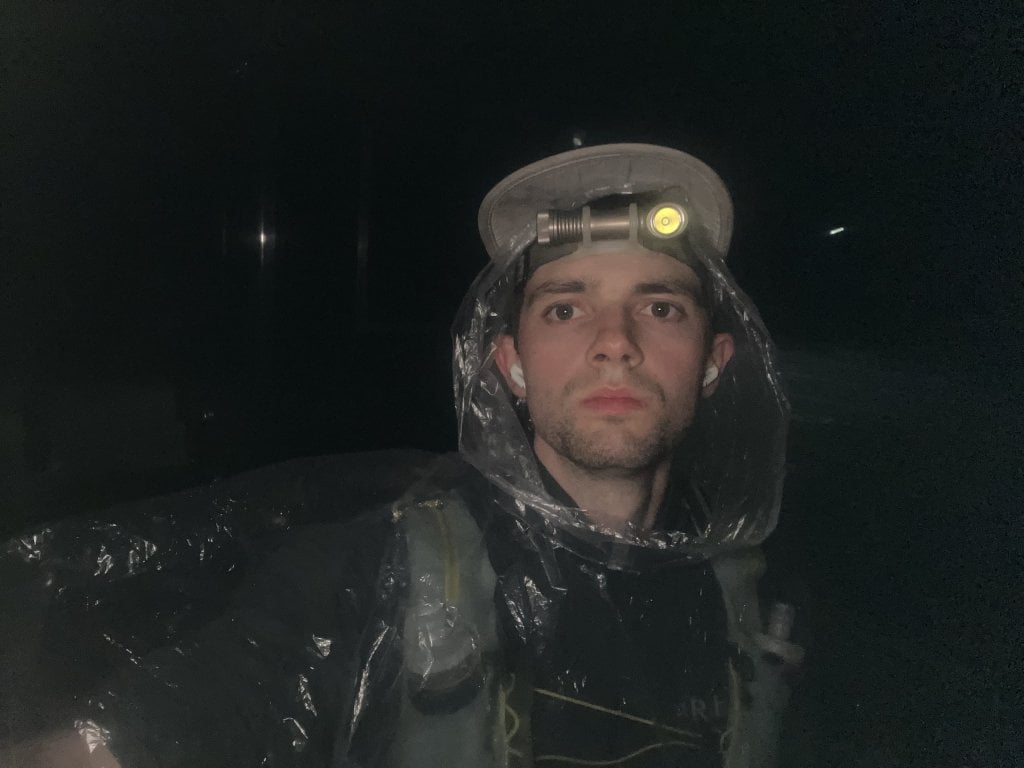

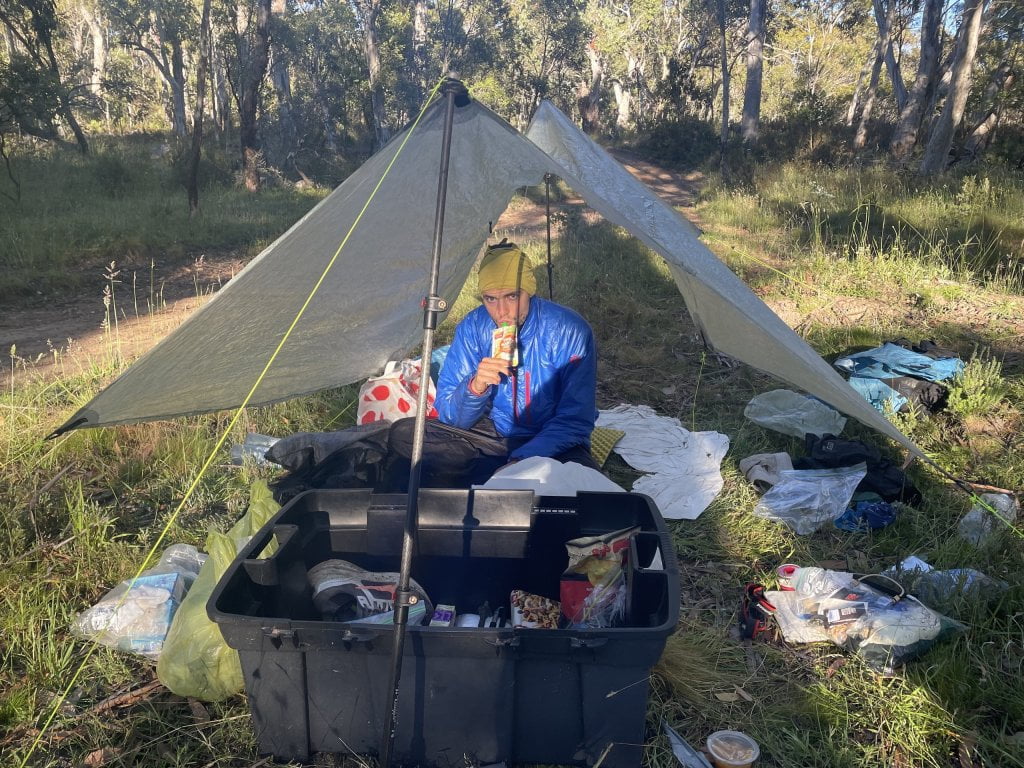
It’s hard to chase FKTs sustainably
Beyond the multi-month recovery phase post FKT, there are many other broader lifestyle impacts of chasing FKTs. Typically, it takes people tens of thousands of kilometres before their bodies are strong enough to undertake FKTs of this length and intensity. To have the time to chase these long distance hikes often requires sacrificing lifestyle stability, work opportunities, and friendships. This is a general theme for thru hiking, but is amplified for setting FKTs.
Josh likened the thru hiking + FKT lifestyle to “being in a touring band where you are living your dream but not making any money. That’s hard to maintain.”
Are FKTs even worth it?
I ended the discussion by asking Josh the question he knew was inevitable. Were his FKTs worth the sacrifices he had to make? Immediately he replied,
“For the AZT, rationally, definitely not. The lasting damage from my shin splints and potential amputation wasn’t worth it. But it’s the one I think back on most fondly. The LT was worth it because I wanted to show myself that I could do this FKT thing, that I was good at something, but I didn’t try hard enough. For the PCT, after my previous failed 2019 attempt, I knew I wouldn’t have been able to put it behind me if I didn’t give it another go. But it’s still too soon to say.”
After much deliberation, I inevitably end up on the ‘worth it’ side of the fence. Although there are many negative consequences, I think FKTs generate experiences that are worth having. I will always remember day 11 of the Bibbulmun FKT, blasting a generic Katy Perry song through my headphones. I was singing at the top of my lungs, alone, in the darkness, with tears of sleep deprivation and raw emotion cascading from my eyes. I don’t even like Katy Perry, but at the time it felt like the only way to express how I was feeling. Now, I reflect on that moment with extreme fondness and warmth.
Moving forward, for me, I don’t think FKTs are primarily about setting records. They’re an excuse to seek out experiences that aren’t available to us in normal life. Similarly, Josh explained that “part of the reason I hike is to experience the full spectrum of emotion.”
Despite all this, I think it’s important to be realistic about the realities of ultra long FKTs. The months of preparation and recovery aren’t easy, and the potential negative consequences shouldn’t be understated. However, maybe these challenges are what make FKTs special and perhaps that’s the point?


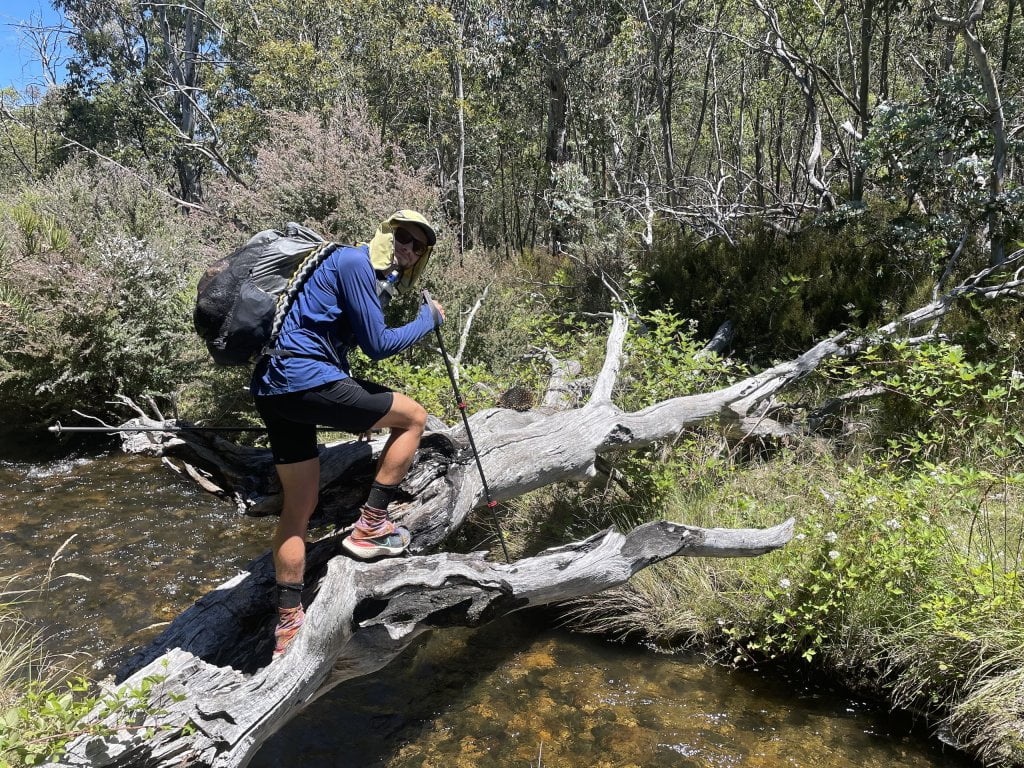
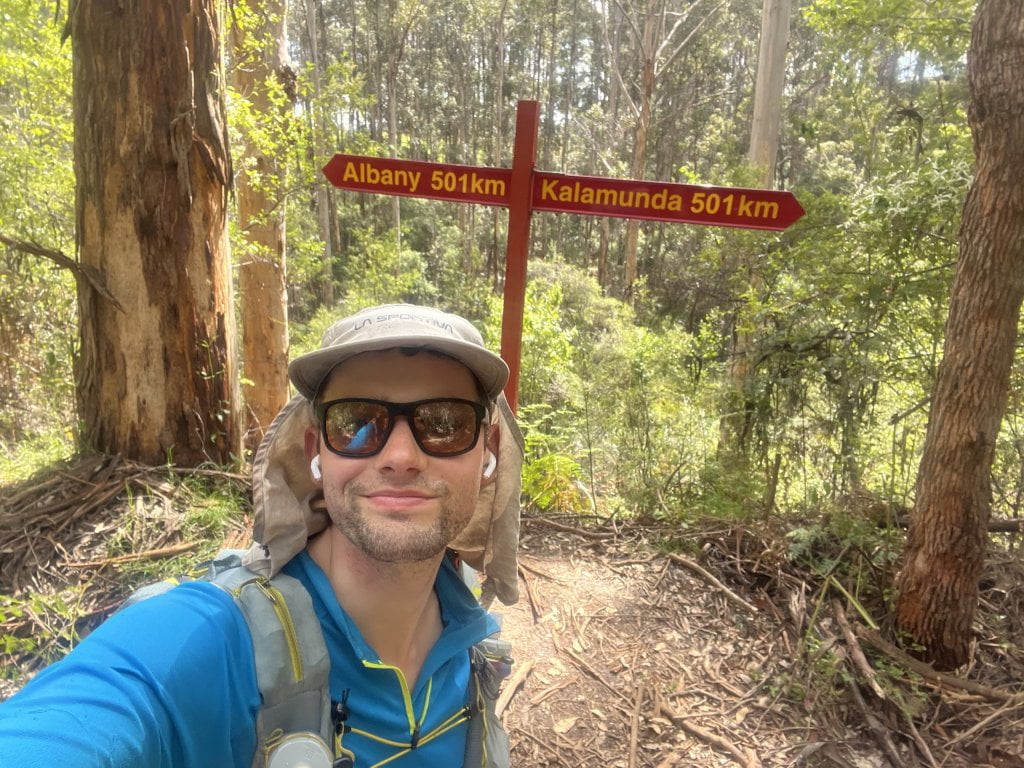

Solid, hope a podcast is coming out soon.
You have both succeeded in extraordinary feats, for which i congratulate you and am in awe. I appreciate your frankness, too. The thing that concerns me about these extreme ultra pursuits and events, which you only mention in passing, is extreme, prolonged sleep deprivation. This impacts all bodily systems including the brain. A single night of reduced or no sleep produces quantifiable impairment. I can recommend a book/audiobook by Matthew Walker entitled “Why we sleep”. Take a listen during your next FKT attempt 😁
Hi Julia thanks for the recommendation!
You’re absolutely right, I certainly didn’t want to underplay the impact/danger of sleep deprivation.
I think FKTs can be worth pursuing (and have provided some of the most meaningful experiences of my life), but as you say, it’s crucial to understand the risks involved and to respect what you are asking of your body (and mind).